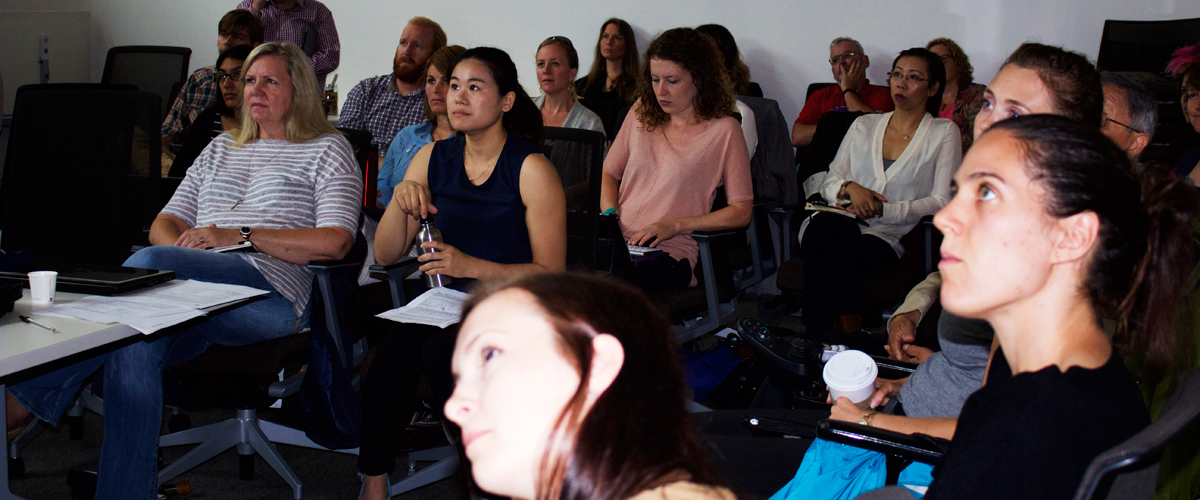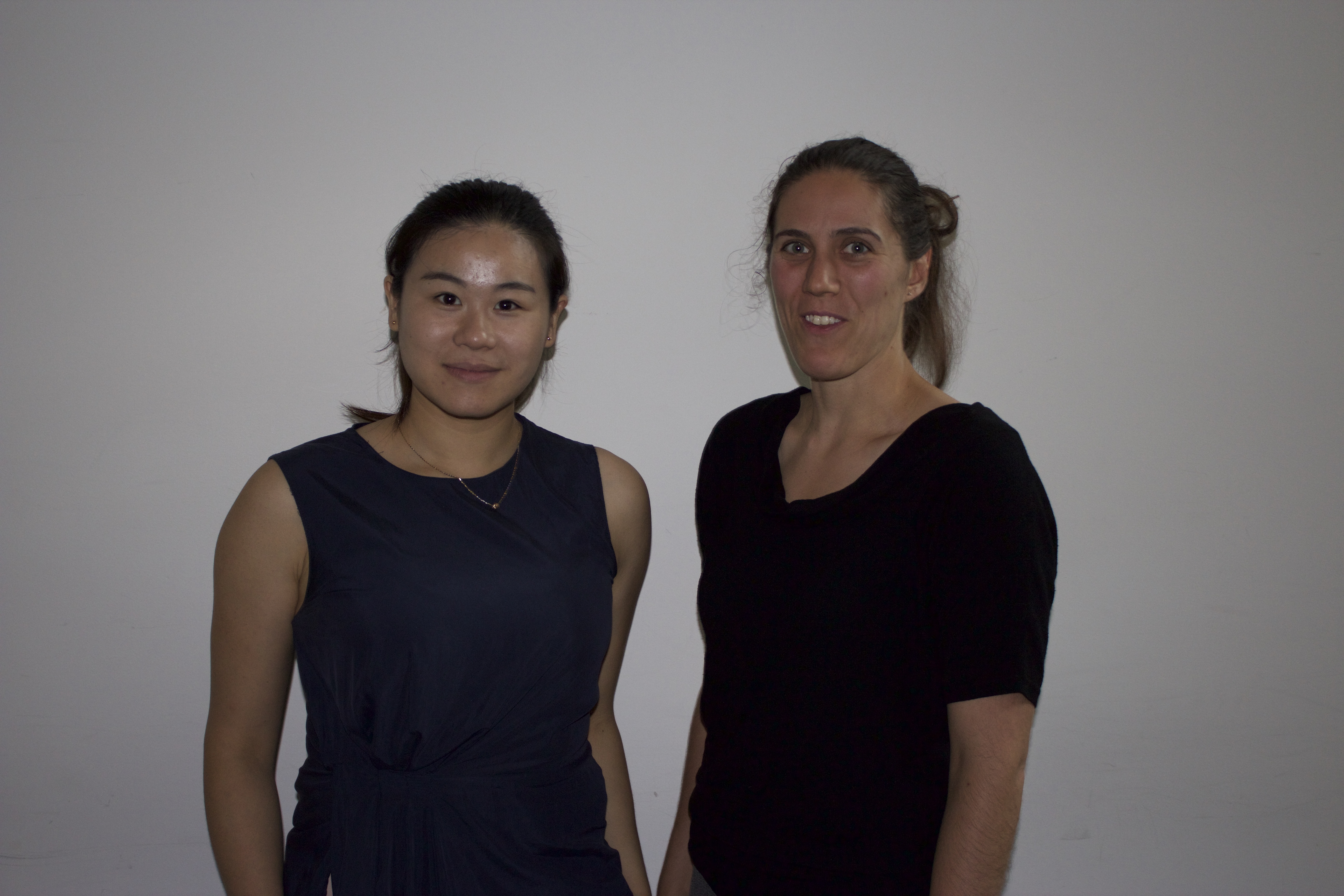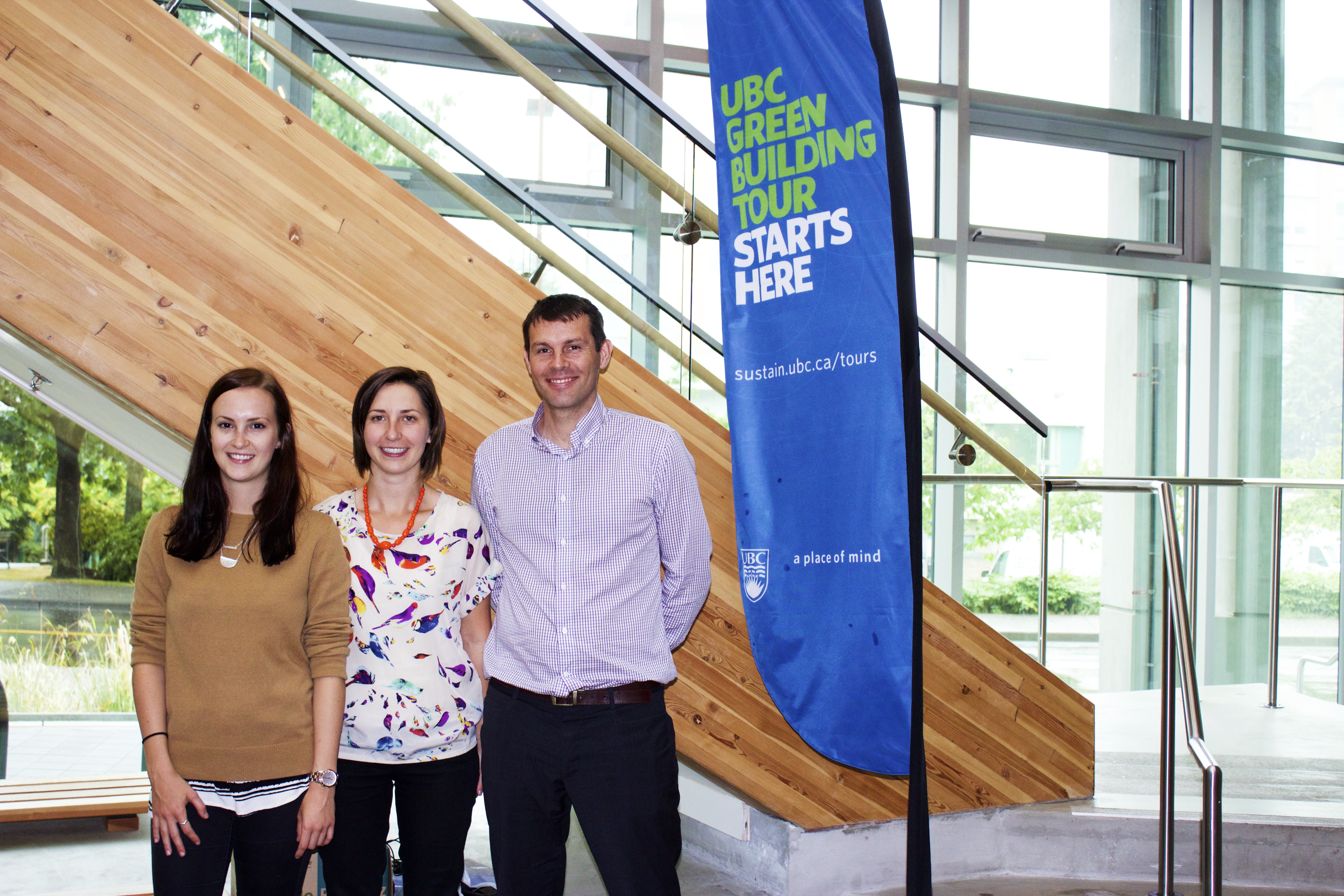
On July 24, 2015, a team of UBC grad students led a report back session in the Policy Lab of the Centre for Interactive Research on Sustainability to discuss take-aways from the International Conference on Health Promoting Universities and Colleges. The session was open to anyone interested in learning about the conference and the signing of the Okanagan Charter.
The conference, held from June 22nd – 25th in Kelowna on the UBC Okanagan campus, was an opportunity for “researchers, practitioners, administrators, students, and policy-makers from around the world to explore pressing issues and identify promising paths for healthy and sustainable campus development.” The mission of the conference was three-part: to connect, discover, and co-design. The culmination of the conference was the signing of an International Charter on health promotion by delegates from 38 countries.
The UBC Wellbeing Initiative provided grants to undergrad and grad students from across the Vancouver campus to provide them with an opportunity to attend the conference. The student attendees included Jenna Omassi (VP Academic, AMS), Catriona Dooley (Ombudsperson, Allard Law Students’ Society), Juan Wang (Sustainability Ambassador), Kathleen Lane (Project Manager, Mental Health Needs Assessment), Stephanie Aitken (Sustainability Scholar, Wellbeing Initiative), and Erika Sagert (Sustainability Scholar, Wellbeing Initiative).
“Health is created, not promoted.”
The session commenced with a welcome from Larry Grant, a Musqueam elder and teacher in The First Nations Languages Program. It was followed by a round of introductions and a summary of the conference from Stephanie Aitken.
Next, Kathleen Lane shared her biggest ah-ha moments from the conference: the idea that health is created, not promoted, and that health is not healthcare, it is based on our environment.
Juan Wang, who is an international student from China, shared her take-away from the conference: research on how food and the environment influence students’ wellbeing in western universities. One of the studies drew samples of students from three different universities in the UK, and found that food provides an important social and economic focus.
Inspired by these studies, Wang decided to do research of her own. She distributed a small survey to ten undergraduate students at UBC to determine what they thought about food quality on campus. Wang’s findings indicated that students think residence food is not very unhealthy, and organic food on campus is too expensive.
“It was quite an intense process, but what really helped was that the working group was very engaging,” said Pajalic.
For more information on the students’ experiences at the conference, check out “Conversations in Wellbeing with UBC Vancouver Students.”
Marko Pajalic, Engagement Specialist at the UBC Sustainability Initiative, spoke about the process of writing the charter in the design lab. The first draft of the charter was taped to the walls of the lab, and guests were encouraged to add their thoughts, either in the lab or on social media. Participants from all over the world, from Chile to Germany, contributed to the charter, which was then transcribed in real time.
“It was quite an intense process, but what really helped was that the working group was very engaging,” said Pajalic.
Finally, Erika Sagert discussed the Wellbeing Initiative pilot survey, which was tested at the conference. The survey, which can also be found here, asks participants for their input on what wellbeing-related priorities UBC should focus on. There were 36 responses to the survey at the conference, and results showed that participants were most in support of being engaged through information sharing (by viewing newsletters and attending workshops) and through active participation (such as creating their own events). The results also illuminated that participants believed building happier and healthier communities happens when community-driven action is coupled with high level policy support.
For a full list of presentations at the conference, click here.
Post by: Kaavya Lakshmanan, Communications Assistant

